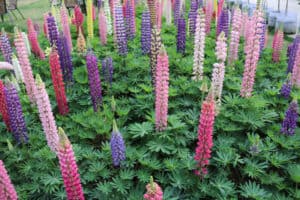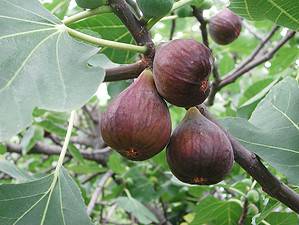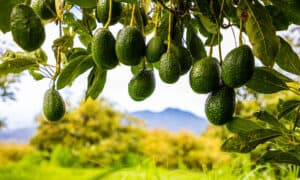Are you looking for a Bermuda grass variety to suit your landscaping project? Celebration Bermuda grass, which was developed in Australia, has a deep blue-green hue that makes it particularly eye-catching. Celebration Bermuda takes less mowing than many other Bermuda types of grass because of its slow growth and hard runners. This variety is suitable for use on golf and sports fields as well as in commercial and residential settings because of its durability and robustness.
To help you make a more informed decision, let’s take a look at some pros and cons of Celebration Bermuda grass. We’ll also take a look at when Celebration Bermuda grass should be used and how to care for this lovely grass variety.
What is Bermuda Grass?
Bermuda grass or Cynodon dactylon is a warm-season grass species used often for lawns, golf courses, sports fields, and other turf uses. Due to its resilience to many soil types and temperatures, it was widely spread in many regions of the world despite being native to Africa.
Bermuda grass is renowned for its thick, lush growth. It is also known for its capacity to withstand a lot of foot activity as well as dry weather. Its fine texture and ability to be mowed to a low height make it a desirable option for anyone seeking a well-kept lawn or turf area.
Bermuda grass is a preferred option for big turf areas that need speedy establishment. This is because of how quickly it grows via stolons and rhizomes. Bermuda grass, as a whole, is a resilient and adaptable grass species. It works well for a number of landscaping and turf applications. Just as well, there are a number of different Bermuda grass varieties. One of the most popular Bermuda grass varieties is the Celebration variety.
What is Celebration Bermuda Grass?
Celebration Bermuda grass is a type of Bermuda turfgrass that is prized for its toughness, tenacity, and aesthetic appeal. It is a hybrid grass that was created by renowned turfgrass breeder Dr. Wayne Hanna at the Coastal Plain Experiment Station of the University of Georgia in the late 1990s.
This type of Bermuda grass has shown exceptional performance in hot, humid regions. Homeowners, landscapers, and golf course management have come to love it for this reason. It can survive heat, drought, and a lot of foot activity thanks to its deep root structure. It has been shown to be among the most tolerant Bermuda grasses to drought that is accessible and affordable.
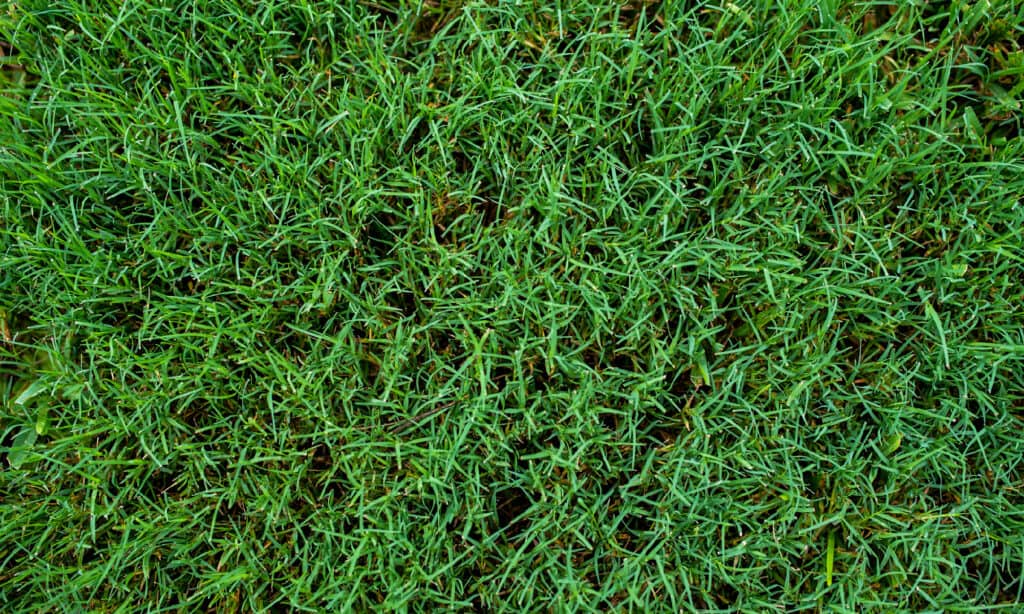
Many Bermuda grass (pictured) varieties are beloved for their thick, deep-rooted nature that can withstand a lot of foot traffic.
©iStock.com/Tatyana Consaul
Benefits of Celebration Bermuda Grass
This grass has a thick growth pattern and a vivid green hue that gives it a lush and welcoming appearance. It is renowned for its speedy damage recovery. This makes it the perfect option for heavily-used locations like sports fields and golf courses.
Celebration Bermuda grass is distinguished for its resistance to common diseases and pests. It has an innate resistance to take-all root rot, a fungus that can seriously harm other kinds of Bermuda grass. Because of this, this type of Bermuda grass is a more ecologically friendly option for homeowners and landscapers since it requires fewer chemical treatments.
Celebration Bermuda grass also has the benefit of requiring less upkeep. It only requires mowing every seven to 10 days during the growing season due to its moderate growth rate. It is a cost-effective solution for those wishing to maintain a lovely lawn or golf course because it also has low fertilizer requirements.
Celebration Bermuda grass is a great hybrid turfgrass species that is highly prized for its resilience, aesthetic appeal, and minimal care needs. It is a favorite among homeowners, landscapers, and golf course management due to its remarkable performance in warm, humid areas. It is the best option for a variety of applications due to its tolerance to pests and diseases, minimal water and fertilizer requirements, and speedy recovery from harm.
Pros of Celebration Bermuda Grass
This incredible hybrid turfgrass species has various benefits over other types of grasses. The following are a few benefits of utilizing Celebration Bermuda grass:
Tolerance to Drought
Celebration Bermuda grass is renowned for having an outstanding tolerance for drought. It can reach water and minerals located deep inside the soil because of its extensive root system. This makes it a fantastic option for regions that get little rain or frequently face droughts.
Resistance to Disease
Take-all root rot is among the several typical turfgrass diseases to which Celebration Bermuda grass is resistant. This indicates that it is easier to manage and needs less chemical treatments than other kinds of grass.
Ease of Maintenence
During the growing season, this Type of Bermuda grass only requires mowing every seven to 10 days due to its sluggish pace of development. It is a cost-effective solution for those who wish to maintain a lovely residential lawn or golf course because it also has low fertilizer requirements.
High Tolerance for Foot Traffic
Celebration Bermuda grass is hardy and able to sustain constant foot activity. This makes it the perfect option for athletic fields, golf courses, and other busy locations.
Curb Appeal
This type of Bermuda grass has a lush, welcoming appearance due to its thick growth pattern and vivid bluish-green hue. Because of its visual appeal, it is usually employed in high-end residential and commercial landscaping projects. If you want your lawn to look expensive, this is the type of grass to consider.
Quick Recovery
This type of Bermuda grass recovers quickly from wear and tear brought on by foot activity or other stresses, such as bad weather or unpredictable climates.
Resistance to Weeds
This type of Bermuda grass has a thick growth pattern that aids in thwarting the development of weeds. As a result, this type of grass needs fewer treatments of herbicide than other kinds of grass, if any at all!
Celebration Bermuda grass has numerous advantages over other kinds of grass, including drought tolerance, disease resistance, minimal care needs, high traffic tolerance, aesthetically pleasing qualities, quick recovery times, and weed resistance. It is a popular option for homeowners, landscapers, and golf course management alike because of these benefits.
Cons of Celebration Bermuda Grass
We’ve established why Celebration Bermuda grass is a highly prized turfgrass species. However, it has certain drawbacks as well. The following are some possible downsides of using this type of Bermuda grass.
Cold Intolerance
Celebration Bermuda grass is not as resistant to cold temperatures as some other grass types. In places with persistently low temperatures or a lot of snow or periods of frosts, it could suffer from winter kill.
High Needs for Nitrogen
Celebration Bermuda grass needs a lot of nitrogen to keep its lush look. However, it still has lower fertilizer needs than some other types of grass. For homeowners or landscapers who need to apply fertilizer often, this may be expensive and time-consuming.
Establishment Takes Time
Celebration Bermuda grass has a lengthy establishment period. That means it could take many weeks or even months for a fresh lawn or turf area to take hold completely. Those who are seeking immediate outcomes could find this to be disappointing. However, patience is key when it comes to any type of sod installation.
Invasive Behavior
If not adequately contained, Celebration Bermuda grass can become invasive and invade nearby lawns or gardens. For homeowners that wish to keep a certain landscaping style, this might be an issue. Plus, your neighbors may not appreciate a hostile takeover of Celebration Bermuda grass.
Requires Full Sun
Celebration Bermuda grass may not be a good choice for locations with high tree cover or partial shade since it needs full light to grow. If you plan on laying down grass near a particularly tall building that creates a lot of shade, you might want to try something other than Celebration Bermuda grass.
Picky About Soil
Celebration Bermuda grass struggles in thick clay or poorly drained soils and favors well-draining soils. This may reduce its applicability in some circumstances. Areas around the southwestern United States may find it difficult to grow this type of grass.
This type of Bermuda grass has several benefits over other grass types, but there are also some possible drawbacks. These include soil needs, delayed establishment, invasive tendencies, susceptibility to cold, high nitrogen requirements, and slow establishment. Before selecting Celebration Bermuda grass in their landscaping or turf projects, landscapers and homeowners should consider these potential negatives against the advantages of the grass.
Celebration Bermuda Grass Spread Rate
Celebration Bermuda grass is a great option for big lawns or turf areas because of its quick spread rate. This particular grass type features an outward-spreading stolon or above-ground stem development pattern, which develops along the soil surface.
Celebration Bermuda grass is one of the most aggressive grass species available and may expand up to two feet per year under optimum conditions. The pace of spread, however, might differ according to elements including soil type, exposure to sunshine, and moisture levels.
Celebration Bermuda grass spreads quickly, which has several advantages. One of which is that it may quickly develop a rich, dense lawn or turf area. This is especially helpful for people who want to quickly establish a fresh lawn or for golf course management who need to restore grass sections after significant wear and tear.
Containing Celebration Bermuda Grass Spread
This type of Bermuda grass spreads quickly, but this trait has some drawbacks as well. It can swiftly invade nearby gardens or lawns if improperly confined, thus becoming invasive. This may be a challenge for homeowners trying to preserve a particular landscaping style or draw clear boundaries between various lawn or garden sections. Plus, nobody wants to make their neighbors mad by planting an invasive type of grass.
It’s crucial to develop suitable containment measures to stop Celebration Bermuda grass from spreading. To stop stolon development outside of defined areas, homeowners can try erecting a physical barrier, such as a deep edging material, or using herbicides.
Celebration Bermuda grass is a great option for swiftly producing a lush lawn or turf area because of its quick spread rate. However, if it is not properly confined, its aggressive growth habit can potentially render it invasive. Before determining whether to use Celebration Bermuda grass in their landscaping or turf projects, homeowners and landscapers should carefully assess the spread rate of the plant and take the appropriate safeguards to stop the unintended spread.
How to Care for Celebration Bermuda Grass
Due to its hardiness and lush look, Celebration Bermuda grass is a preferred option for lawns and turf areas. This grass species has to be properly cared for in order to be strong and bright all year long. The following are some pointers about maintaining Celebration Bermuda grass.
Mowing
Celebration Bermuda grass has to be cut frequently to be healthy and attractive. During the growth season, it is advised to mow the grass every five to seven days to a height of one to two inches. Don’t cut your grass too short. Doing so might stress the grass and harm the root system.
Watering
Celebration Bermuda grass has to be watered often to keep strong and healthy. It is advised to water the grass well once a week, giving it around one inch of water. Do not overwater because this might result in fungus development and other issues.
Fertilizing
Because Celebration Bermuda grass needs a lot of nitrogen, it should be fed often to keep its lush appearance. During the growth season, it is advised to fertilize the grass every four to six weeks with a slow-release nitrogen fertilizer. Fertilizing should be avoided when the weather is hot or dry since this might stress the grass.
Aeration
By making it easier for nutrients, oxygen, and water to reach the roots, soil aeration can benefit the health of Celebration Bermuda grass. Using a core aerator, it is advised to aerate the soil once a year throughout the growing season.
Weed Control
This type of Bermuda grass can be susceptible to the growth of weeds, which may be detrimental to its health and attractiveness. To stop weed development, it is advised to apply pre-emergent herbicides in the early spring. Herbicides that are applied after weeds have already sprouted can also be utilized to control them.
Pest Control
Celebration Bermuda grass is susceptible to pests including grubs, armyworms, and chinch bugs. Insecticides should be used as needed to reduce pest populations and guard against harm to the grass.
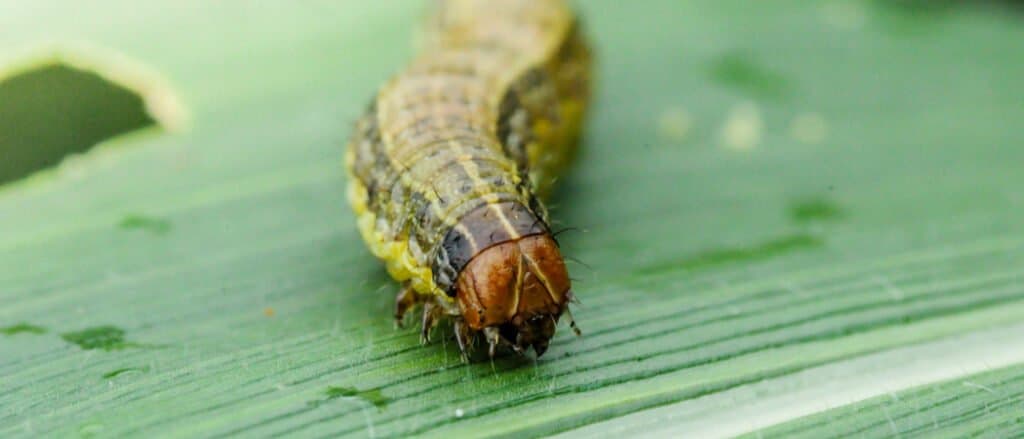
Armyworms (pictured) can cause a lot of problems for Bermuda grass lawns.
©kale kkm/Shutterstock.com
Soil pH
Any nutrient shortages or pH imbalances that could be affecting the health of Celebration Bermuda grass can be found by doing a soil test. Every two to three years, soil testing is advised. Fertilizer treatments should be modified as necessary.
Overwintering Care
In locations with persistently cold temperatures or significant snowfall, this type of Bermuda grass can undergo winter death because it is not as cold-tolerant as some other grass varieties. It is advised to not fertilize the grass in the fall since this might promote growth and increase its susceptibility to winter damage. Additionally, it is advised to avoid cutting the grass too short in the fall since longer blades might aid in protecting the root system from the harsh winter weather.
To keep Celebration Bermuda grass fresh and bright all year long, it has to get regular maintenance and care. A thorough management plan for this grass species should include proper mowing, watering, fertilizing, aeration, weed and insect control, soil testing, and winter care. Before selecting Celebration Bermuda grass in your landscaping or turf projects, take some time to carefully assess the grass’ maintenance needs. If it’s too much work, look into something a bit more manageable.
The photo featured at the top of this post is © pyzata/Shutterstock.com
Thank you for reading! Have some feedback for us? Contact the AZ Animals editorial team.




